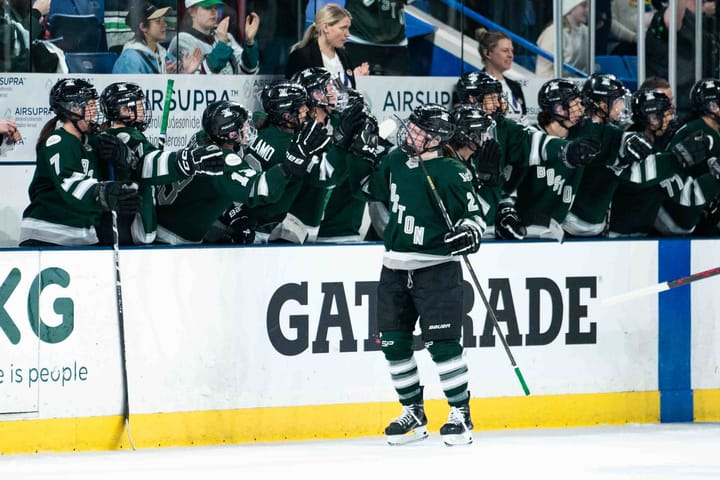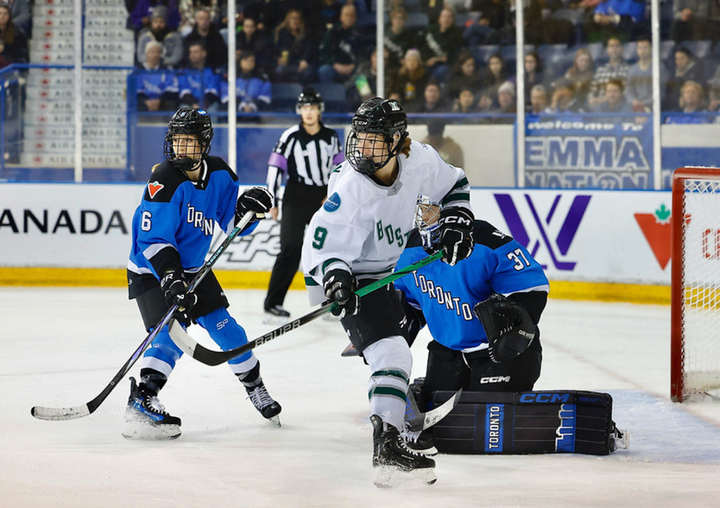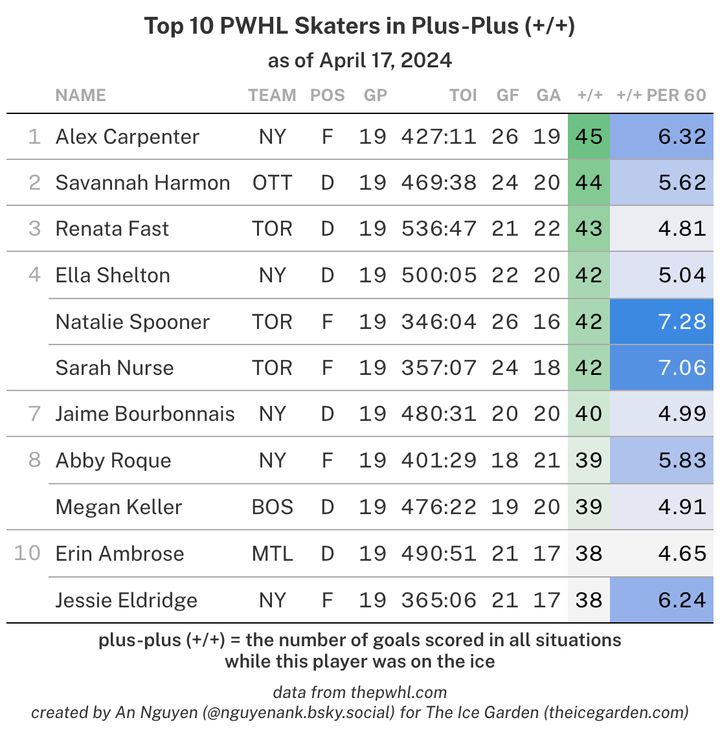NWHL officially expands to Toronto
The unnamed team will be privately owned and the first true expansion for the league.
The NWHL, officially, is heading to Toronto.
The league’s sixth team — yet to be named — will be led by Digit Murphy as the team’s president, one of the most polarizing people in women’s hockey.
“I really like this next generation with the franchise model they’ve brought in,” said Murphy. “.... When you start having franchise owners, they have a vested interest. It’s easier than the league owning it, because it’s tough having a league own all those teams in all those markets.”
The franchise, set to begin play in 2020-21, will be owned by Johanna Neilson Boynton, who also has a stake in the Boston Pride. They will be the second privately owned team for the upcoming season, and third in NWHL history. Murphy said she connected with Boynton at a Cornell hockey game at Harvard, and they put the wheels in motion on her involvement with the new club.
Murphy brings in five players — all of whom played in the CWHL in the past — to the roster: Kristen Barbara, Elaine Chuli, Shiann Darkangelo, Emma Greco and Taylor Woods.
“Once I found out Digit was involved, it made my decision pretty clear,” said Darkangelo. “I trust (Toronto’s front office) as leaders and the vision they have and where they see things going.”
Four of the players brought in — Chuli, Darkangelo, Greco, and Woods — have been a part of the PWHPA, joining Jordan Juron, Kristen Lewicki, and Alexa Armburu in signing contracts with the NWHL after playing a Dream Gap Tour stop.
The coach of the Boston Blades for 12 years before coaching the KRS Vanke Rays in China, Murphy’s involvement with the CWHL is well-documented, and so was her initial uncertainty over the NWHL’s future.
“Part of the issue is, it’s come pretty far with what they know about,” Murphy said to espnW in 2015, before the NWHL launch. “They know about technology. They know about Twitter followers, they know about Facebook, they know about using Hilary, they know about public relations and newspaper articles. But the crux of the issue right now is, will people watch women’s hockey? And the answer right now is, not at a rate that will sustain salaries of the players. That’s the simple answer right there.”
Specifically, working with NWHL commissioner Dani Rylan — the other most polarizing name in women’s hockey — is a development after Rylan’s reputation amongst the CWHL ranks was notably poor after she recruited CWHL players to the newly-minted NWHL.
For Murphy, that’s all in the past.
“I’m gonna be in Toronto, so I work for the franchise,” said Murphy. “But I’m happy to work with Dani and her team. I’m fine. Hockey is a small world, you can’t build barriers, you have to build bridges…. It’s too small of a pond to not work together.”
Now, five years later, Murphy said her focus is on inclusivity in women’s hockey, and working together as one unit to grow the sport, and having a Canadian franchise in the NWHL is a big step in that direction.
“Canada’s a totally different market than the U.S. in the way they absorb hockey and think about hockey,” said Murphy. “I think what I can do is ease them into the market…. We have to roll about in a way they want to absorb it. They want to see good hockey, we have to put a good hockey product on the ice and do it thoughtfully.”
As someone who, to many, represents the glory days of the CWHL, Murphy also represents a bridge in the women’s world that’s been divisive for years. First, when the #OneLeague discourse of the CWHL and NWHL dominated, then when the PWHPA drew its line in the sand with the NWHL and hundreds of players declared they wouldn’t return to the league.
Murphy’s presence alone changes the narrative for many. She coached Pride president Hayley Moore at Brown and Riveters general manager Bray Ketchum with the Blades.
“She’s somebody who has been a trailblazer in women’s hockey,” said Darkangelo, who previously played for the Connecticut Whale and Buffalo Beauts. “I played for her in China and that was my first time playing for her. She has a growth mindset and can paint a picture other people can see and buy into the mission she sends out for everyone. That’s an attractive thing people like about her.”
Murphy was last involved in women’s sports founding the now-defunct United Women’s Lacrosse League, known as UWLX, before focusing on an initiative she was working on for women’s athletes when their careers end.
She changed her focus back to the pro realm when this opportunity arose with the NWHL, where she hopes she can be a part of ending some of the divisiveness in the sport. Lessons learned from the UWLX helped her shape an idea for the Toronto franchise.
“It’s really hard when you don’t know the markets as well as the people in the markets know them,” said Murphy. “They should be owning not only the teams but the responsibilities managing the teams. They have access to information and resources you don’t know.”
The Toronto team, still seeking an arena, will be the first permanent professional women’s hockey team in Canada since the CWHL ceased operations in March 2019. The PWHPA has had two weekend-long events in Toronto since they founded.
The NWHL has attracted primarily American players overlooked in the CWHL, but also Canadian players have primarily been on the Buffalo Beauts roster. In the midst of off-season free agency, this Toronto club could attract much of the league’s Canadian talent.
“When I coached the Blades, we were the only (CWHL) team in (the Untied States),” said Murphy. “Now we’re the only team in Canada. It’s not uncharted waters.”
Murphy will be responsible for finding a head coach and a general manager for the new team. Tyler Tumminia will serve as the club’s Chairwoman.
Since the start of the PWHPA, most of pro women’s hockey’s Canadian talent has played there, almost as an extension of the past CWHL rosters. For the past years before the CWHL’s disappearance, the landscape had been painted as the two leagues against each other.
Murphy views CWHL players joining the league as a sign of possible peace by keeping the same values as inclusivity in hockey.
Perhaps the Toronto franchise is a step in that direction.
“It’s about inclusion,” she said. “The three pillars of our organization are inclusion, empowerment, and education…. We want to build people up. We want to grow and lead and not disempower people…. I think the statement this is all making is it’s really about working together and rowing the boat in the same direction.
“We want to be another hockey option…. You might as well all work together. Life’s too short.”





Comments ()